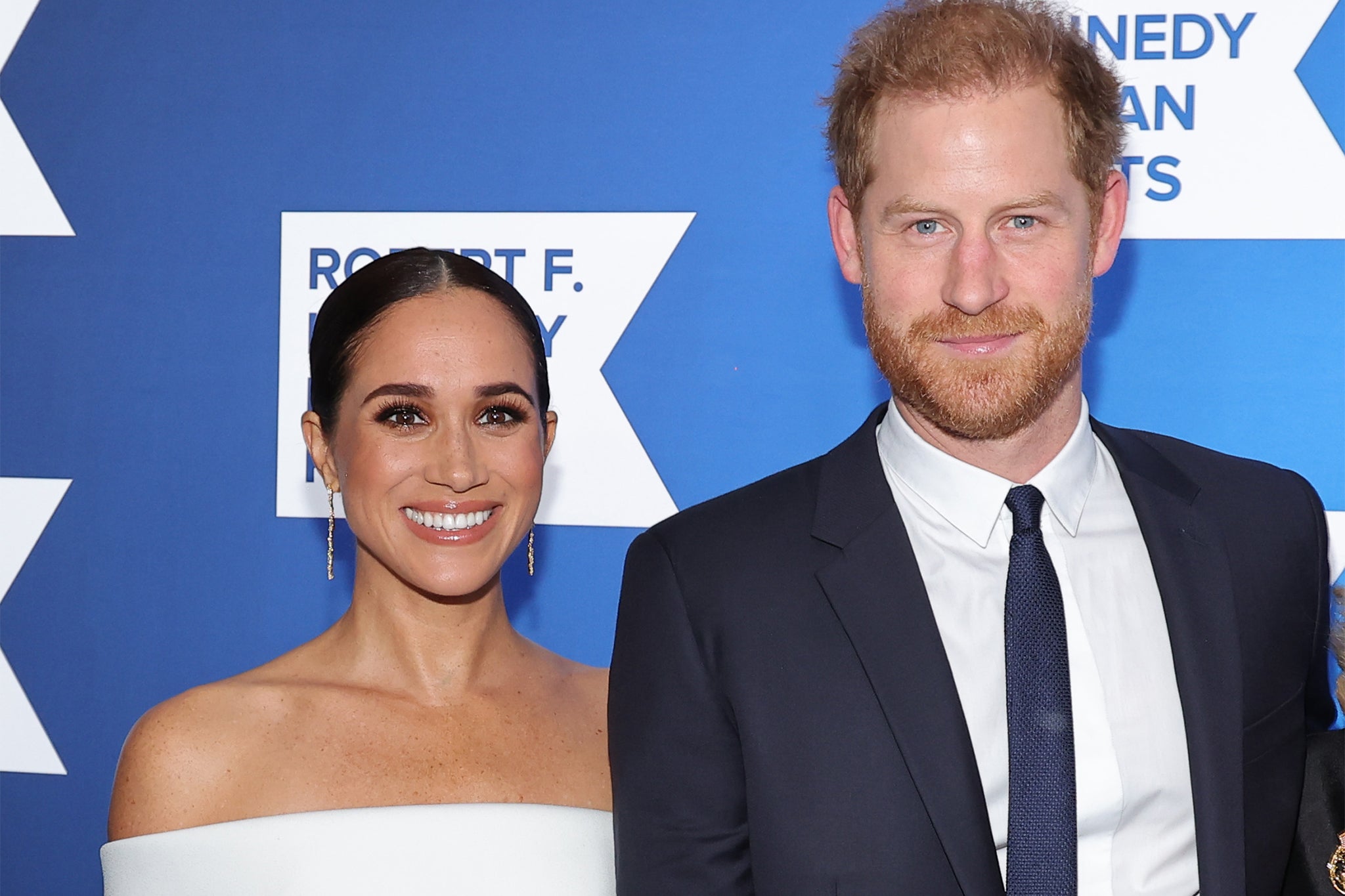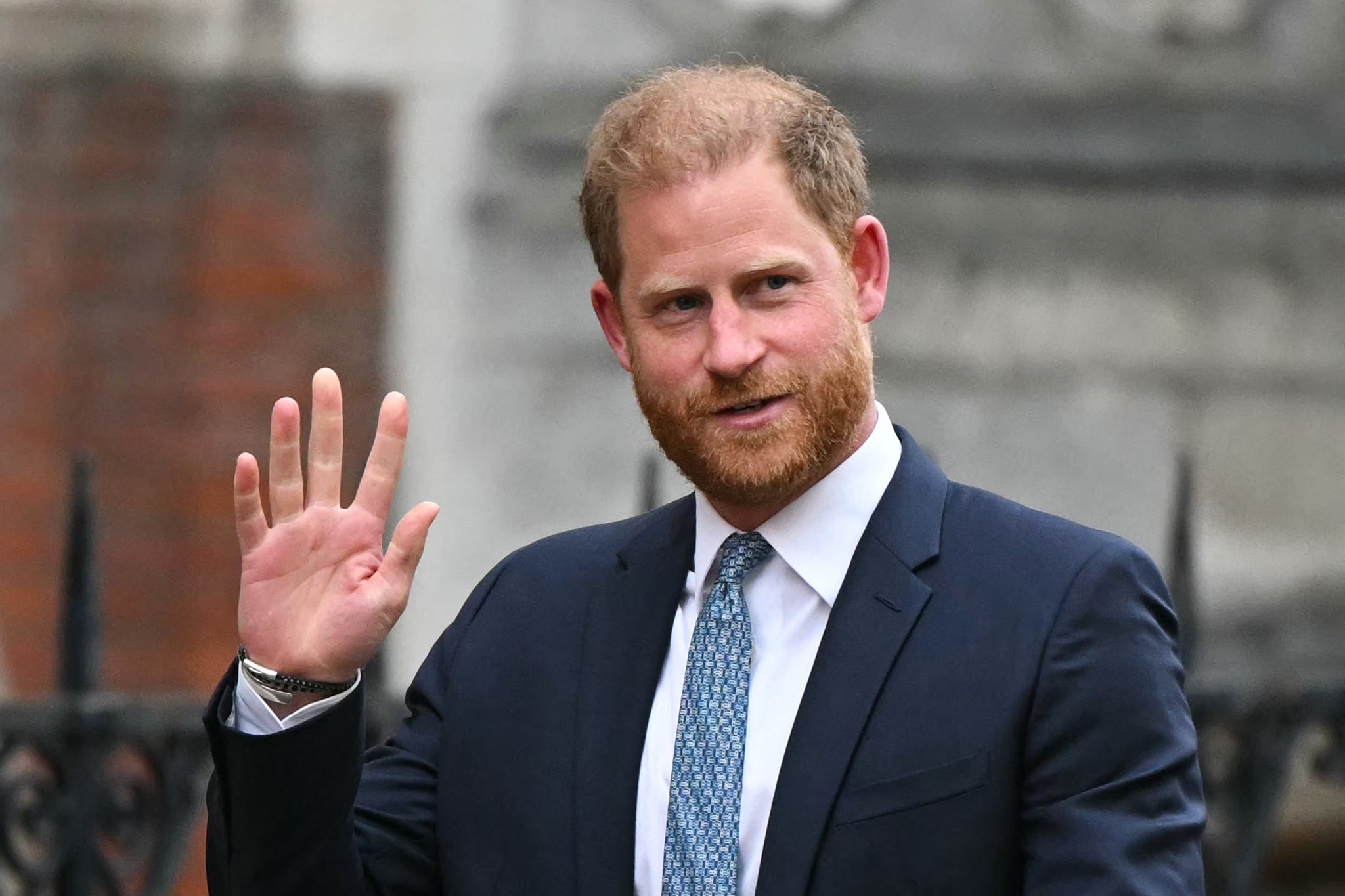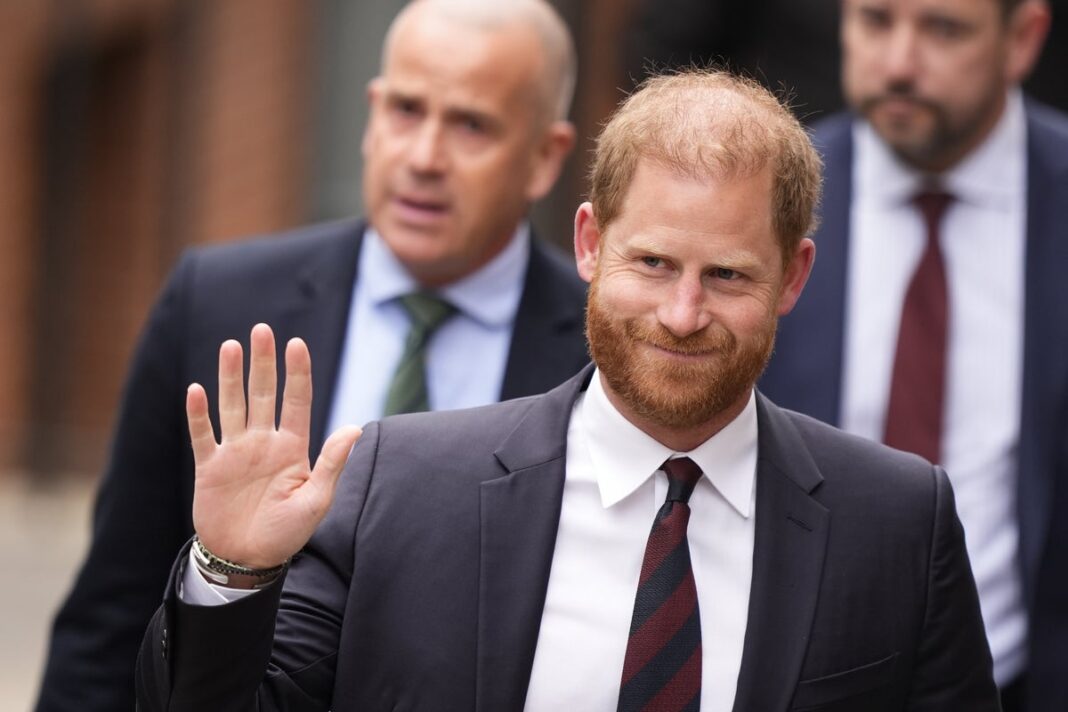Prince Harry’s “life is at stake” in the clash over his UK security arrangements, his lawyer has warned the Court of Appeal on the final day of the duke’s legal challenge.
The Duke of Sussex is challenging the dismissal of his High Court claim against the Home Office over the decision of the Executive Committee for the Protection of Royalty and Public Figures (Ravec) that he should receive a different degree of protection when in the UK.
In her closing submissions, Shaheed Fatima KC, for the duke, told the court: “One must not forget the human dimension to this case. There is a person sitting behind me whose safety, whose security, and whose life is at stake.
“There is a person sitting behind me who is being told he is getting a special bespoke process when he knows and has experienced a process that is manifestly inferior in every respect.”
In what his barrister said was an illustration of how important the case is to him and his family, the 40-year-old duke, who lives in the US, attended the Royal Courts of Justice in central London for the two-day hearing.
After arriving at around 10.10am ahead of the second day on Wednesday, Harry, wearing a dark blue suit, could be seen taking notes and quietly talking with members of his legal team during parts of the hearing.
When the proceedings were paused early in the afternoon, the duke was being escorted out of court by his security detail when a member of the public shouted her support for him in a dramatic outburst, adding: “If you’re members of the press, you’re the reason he’s no longer in England.”
Describing how decisions over Harry’s security were made in a “unique set of circumstances”, a lawyer for the Home Office told the court in the morning: “There is nothing about the appellant’s announcement in January 2020 that he was to step back from his role in the royal family and spend most of his time abroad that was usual.”
In his oral submissions, Sir James Eadie KC added: “It was a category of its own.”
The appeal comes after retired High Court judge Sir Peter Lane ruled last year that Ravec’s decision, taken in early 2020 after the Duke and Duchess of Sussex quit as senior working royals, was lawful.
Ravec has delegated responsibility from the Home Office over the provision of protective security arrangements for members of the royal family and others, with involvement from the Metropolitan Police, the Cabinet Office and the royal household.

Ms Fatima previously said that Ravec came up with a “different and so-called bespoke process” for Harry.
She continued: “The appellant does not accept that ‘bespoke’ means ‘better’. In fact, in his submission, it means that he has been singled out for different, unjustified and inferior treatment.”
Ms Fatima told judges that the bespoke process involved Ravec considering why Harry would attend a particular event “even though that is plainly irrelevant to the question of security”.
The Home Office is defending the appeal, previously telling the court the challenge “involves a continued failure to see the wood for the trees, advancing propositions available only by reading small parts of the evidence, and now the judgment, out of context and ignoring the totality of the picture”.
Parts of Wednesday’s hearing before Sir Geoffrey Vos, Lord Justice Bean, and Lord Justice Edis were heard in private, without members of the press or public, though the duke was allowed to remain.
During the public part of the hearing, Sir James said that the committee does not proceed “by way of comparison” between people under its remit.
He said: “That is for the obvious reason that it is highly unlikely that two cases will ever in truth be the same, when judged against the broad guiding principles that apply.”

In Tuesday’s hearing, Ms Fatima told the court that the failure to do a risk management board assessment for Harry meant that Ravec “did not have the expert analysis that it needed” to determine whether the duke should be treated like people in an “other VIP” category.
She continued: “Ravec did not make a reasonable decision because the appellant’s position is analogous to those in that ‘other VIP’ category.
“Had the judge properly evaluated the evidence, he would have come to that conclusion.”
Ms Fatima also said: “The appellant’s case is not that he should automatically be entitled to the same protection as he was previously given when he was a working member of the royal family.
“The appellant’s case is that he should be considered under the terms of reference and subject to the same process as any other individual being considered for protective security by Ravec, unless there is a cogent reason to the contrary.”
At the end of the hearing, judge Sir Geoffrey Vos said the Court of Appeal’s decision would be given in writing at a later date, which was “most unlikely” to be before Easter, adding: “Plainly we will take our time to consider our judgments.”



